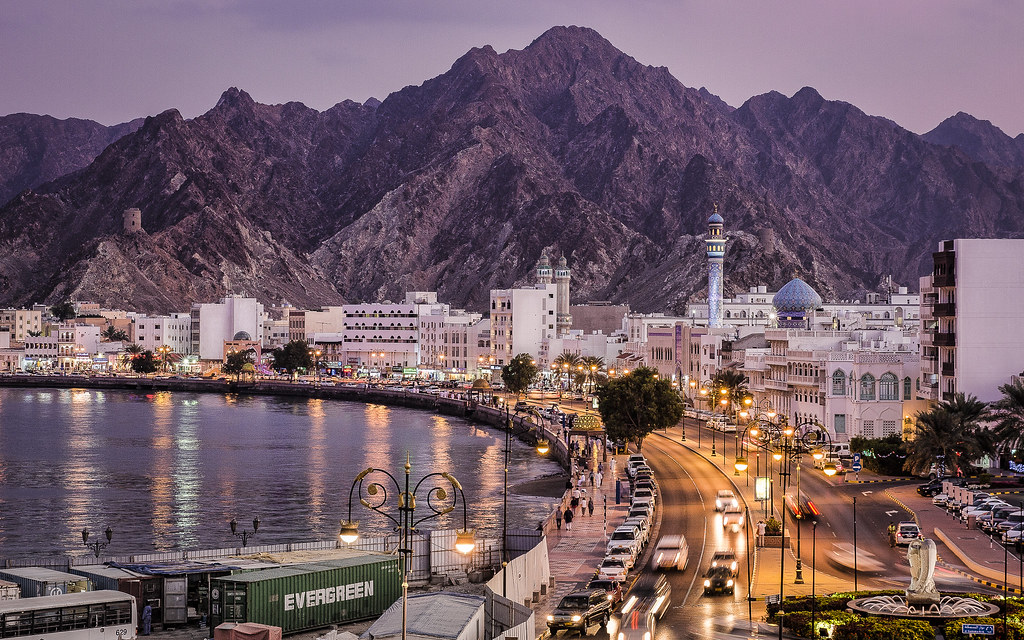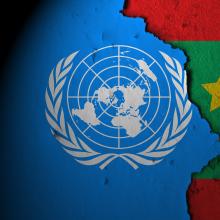February 04, 2021

Muscat by Sarmu, licensed under CC BY-NC-SA 2.0
During its third UPR session, on January 21, 2021, Oman received 264 recommendations by 99 UN Member States. Among those, over 30 concerned the ratification of international human rights treaties and optional protocols, including the International Covenant on Civil and Political Rights (ICCPR), the Optional Protocol to the Convention Against Torture (OP-CAT), the Second Optional Protocol to the ICCPR (OP-ICCPR 2), and the International Convention on the Protection of the Rights of All Migrant Workers and their Families (ICRMW). Other issues raised included promoting and protecting fundamental freedoms in Oman, including the right to free expression, peaceful assembly, association, and the right to life. Ahead of Oman’s UPR, MENA Rights Group submitted a joint report examining Oman’s human rights record and providing recommendations.
Freedom of expression
More than 15 of the recommendations received by Oman concerned the right to freedom of opinion and expression. For example, Denmark recommended that Oman “amend the 2002 Telecommunications Act and the 2011 Cybercrime Law to bring them into line with international standards on the right to freedom of opinion and expression.” In fact, both of these laws contain provisions that have been used to target and restrict the work of activists and journalists and to ban books, impose travel bans, and suspend the licenses of independent media and newspapers. In light of the coronavirus pandemic, the Omani Government Communications Centre issued, in March of last year, a statement against spreading rumours or fake news that may affect public order. The Centre declared that “the Law on Combating Information Technology Crimes (the 2011 Cybercrime law) stipulates that whoever uses the information network or information technology means to produce, publish, distribute or possess anything that violates religious values or public order, shall be punished.”
Furthermore, during its review, eight UN Member States recommended that Oman review or amend its Penal Code. On its part, the United Kingdom recommended that Oman “guarantee[s] the right to freedom of expression by amending the Penal code and other laws such as the Press and Publications law.” The Penal Code, as amended in 2018, includes overly broad provisions that severely restrict Omani citizens’ right to free expression, since it criminalises criticism of the Sultan or any foreign head of state in, or visiting, Oman. It additionally criminalises the broadcasting, publication or possession of information considered to be “harmful to the state”. Article 115 further imposes a prison sentence of maximum three years for anyone who publishes information that is “liable to harm the prestige of the state,” while article 12 of the Press and Publications Law mandates that before publishing any publication, owners of printing presses “shall obtain permission in advance from the Ministry of Information.”
Freedom of peaceful assembly and association
During its 2021 UPR, a total of 14 recommendations were made to the Omani authorities regarding the protection of the right to freedom of peaceful assembly and association. Already in 2014, after visiting Oman, the former UN Special Rapporteur on the right to peaceful assembly and association had found “a pervasive culture of silence and fear affecting anyone who wants to speak and work for reforms in Oman.”
The 2018 amendments to the Penal Code further contributed to a shrinking civic space within the country. Articles 116 and 270 impose severe punishments on individuals who establish, or work with, associations or organisations seeking to “contest the political, economic, social or security principles of the state” or to “harm the foundations on which the Islamic religion is based.” Additionally, article 121 criminalises taking part in a public gathering of ten individuals or more “where this is liable to cause a breach of security or public order.” In its statement, Australia recommended that Oman “implement[s] legal reforms to eliminate constraints on the peaceful exercise of the rights to freedom of expression, association, and assembly.” Canada additionally recommended that the Omani authorities “ensure that the Penal Code and other relevant legislation are aligned with international standards and codify and protect rights of free speech, as well as freedom of association and assembly.”
Right to Life
The death penalty remains applicable in Oman: in 2018, and for the first time since 2009, four individuals were sentenced to death. The death sentence, furthermore, is listed as punishment for over 20 articles in Oman’s 2018 Penal Code and some of the offenses in question, including for drug-related crimes, do not meet the threshold of the “most serious crimes.”
During its UPR, over 15 Member States issued statements asking Oman to take appropriate steps to abolish the death penalty or establish a moratorium.
Next steps
Oman has until the 47th session of the Human Rights Council – which will be held from June 21 to July 9, 2021 – to provide responses to the recommendations it received during its UPR. The authorities will then commit themselves to implementing accepted recommendations ahead of its next review, which will take place in 2025.






